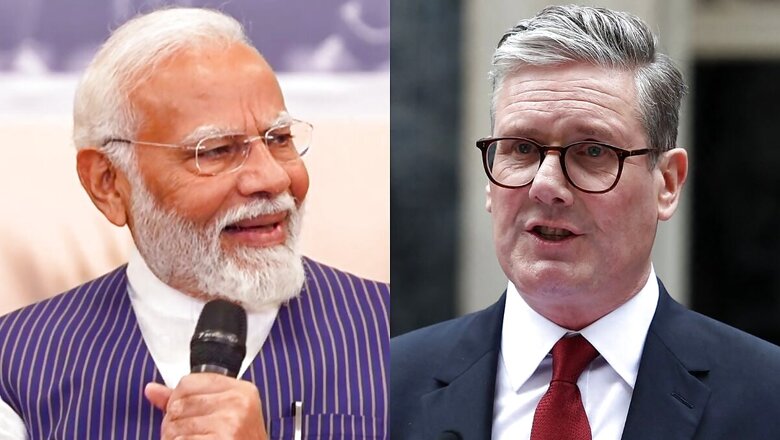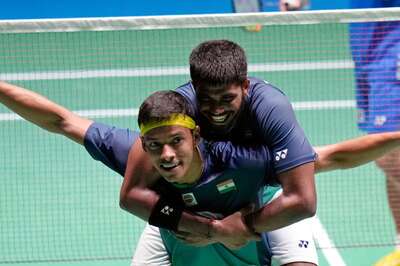
views
At the 79th session of the UN General Assembly, UK Prime Minister Keir Starmer on Thursday announced his support for India’s bid for a permanent seat on the United Nations Security Council (UNSC). This endorsement follows a similar call from French President Emmanuel Macron.
Speaking at the UN General Assembly here, Starmer said that “the Security Council has to change to become a more representative body, willing to act – not paralysed by politics”. “We want to see permanent African representation on the Council, Brazil, India, Japan and Germany as permanent members, and more seats for elected members as well,” he said.
Watch: While addressing the general debate at the 79th session of the UN General Assembly, UK Prime Minister Keir Starmer says, “We want to see permanent African representation on the council, Brazil, India, Japan, and Germany as permanent members, and more seats for elected… pic.twitter.com/mOSdCsk8P4— IANS (@ians_india) September 27, 2024
UN Security Council
The United Nations Security Council consists of 15 members: five permanent members with veto power (the United States, China, France, Russia, and the United Kingdom) and 10 non-permanent members elected for two-year terms.
The Council’s primary functions include the investigation of conflicts, the establishment of peacekeeping operations and the imposition of sanctions when necessary. It plays a crucial role in addressing global crises and conflicts, making it a key player in international diplomacy.
‘Make UN more efficient’
A day earlier, Macron strongly advocated for India’s inclusion as a permanent member of the UNSC during his address at the UN General Assembly. “Let’s make the UN more efficient. We need to make it more representative and that’s why France is in favour of the Security Council being expanded,” he said.
The question of equitable representation has been on the Assembly’s agenda since 1979. However, the calls for reform grew louder amid widening conflict worldwide. Several nations, including permanent UNSC members like the US, have expressed support for India’s inclusion in this powerful group. However, China has opposed such a move.
Under successive governments, India has continued its efforts to move the process of UNSC reforms forward, including by engaging actively in the ongoing Intergovernmental Negotiations (IGN) on the Security Council reform. As part of the G4, which includes Brazil, Germany, and Japan, New Delhi has advocated for expanding the UNSC to include more nations as permanent members to reflect current geopolitical realities.
‘Representative, transparent, democratic’
Reiterating its longstanding position, India on Thursday once again called for urgent reform of the UN Security Council to make it more effective, democratic, and accountable. During an Open Debate on Leadership for Peace here, Indian diplomat Tanmaya Lal stressed the urgent need for reform of the UNSC and argued that the outdated structure fails to address the escalating global conflicts and security challenges effectively.
The Secretary (West) of the Ministry of External Affairs pointed out that the UNSC was established over eight decades ago, a time when many member states were still colonies. “The UNSC has to become representative, transparent, efficient, effective, democratic, and accountable,” Lal said while urging for the need for text-based negotiations. Without naming any country, he slammed those resisting meaningful changes to the global governance framework, asserting that such opposition undermines the UN’s legitimacy.




















Comments
0 comment